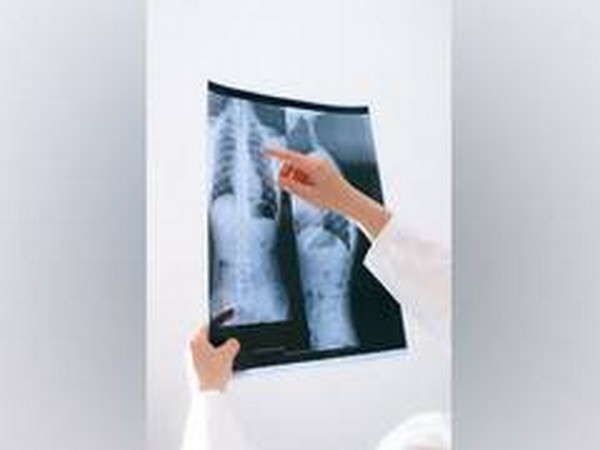AI can improve lung nodule detection in chest x-rays: Study
Researchers found that AI significantly improved the detection of lung nodules on chest X-ray

- Country:
- United States
A study has evaluated the effect of artificial intelligence (AI)-based software in real clinical practice, as researchers found that AI significantly improved the detection of lung nodules in chest X-rays. The study was published in the journal Radiology.
Lung nodules, which are abnormal growths that form on the lungs, are very common and typically form from previous lung infections. In rare instances, they can be a sign of lung cancer. One of the common screening methods used for identifying lung nodules is chest X-rays. AI can be a powerful tool to help identify lung nodules, especially when radiologists are experiencing a high volume of cases. "Detecting lung nodules, a primary finding of lung cancer, is one of the crucial tasks in chest X-rays," said study co-author Jin Mo Goo, M.D., PhD, from the Department of Radiology at Seoul National University Hospital in Korea. "Many studies have suggested that AI-based computer-aided detection software can improve radiologists' performance, but it is not widely used."
To identify the actual effect that AI has in clinical practice, researchers included 10,476 patients with an average age of 59, who had undergone chest X-rays at a health screening center between June 2020 and December 2021. "As our trial was conducted with a pragmatic approach, almost all enrolled participants were included, which is a real clinical setting," Dr Goo said.
Patients completed a self-reported health questionnaire to identify baseline characteristics such as age, sex, smoking status and past history of lung cancer. Eleven per cent of the patients were current or former smokers. The patients were randomly divided evenly into two groups--AI or non-AI. The first group's X-rays were analyzed by radiologists aided by AI while the second group's X-rays were interpreted without the AI results.
Solid nodules with diameters either larger than 8 millimeters or subsolid nodules with a solid portion larger than 6 millimeters were identified as actionable, meaning that the nodule required follow-up according to lung cancer screening criteria. Lung nodules were identified in 2 per cent of the patients. Analysis showed that the detection rate for actionable lung nodules on chest X-rays was higher when aided by AI (0.59%) than without AI assistance (0.25 per cent). There were no differences in the false-referral rates between the AI and non-AI-interpreted groups.
While older age and a history of lung cancer or tuberculosis were associated with positive reports, these and the other health characteristics did not have an impact on the efficacy of the AI system. This suggests that AI may work consistently across different populations, even for those with diseased or postoperative lungs. "Our study provided strong evidence that AI could really help in interpreting chest radiography. This will contribute to identifying chest diseases, especially lung cancer, more effectively at an earlier stage," Dr Goo said. (ANI)
(This story has not been edited by Devdiscourse staff and is auto-generated from a syndicated feed.)
- READ MORE ON:
- Dr Goo
- non-AI
- M.D.
- Korea
- Jin Mo Goo
- Seoul National University Hospital
- Lung nodules
ALSO READ
South Korea in Tumult: The Fall of President Yoon
High-Stakes Political Drama: South Korea's Leader Faces Arrest Saga
South Korea's Political Tempest: Impeached Yoon Faces Detention Chaos
South Korea Extends Airport Shutdown Amid Jeju Air Crash Probe
Tensions Rise as North Korea Fires Ballistic Missile Amid U.S. Diplomatic Visit










